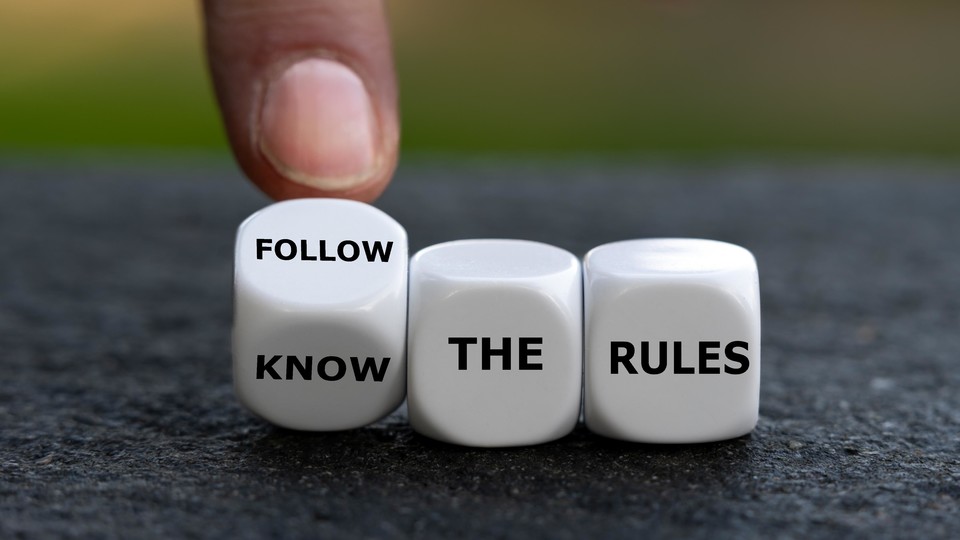
Power Trip
How Gaining Power Can Undermine The Ability To Lead
Based on research by Marlon Mooijman, Wilco W. van Dijk, Naomi Ellemers and Eric van Dijk
How Gaining Power Can Undermine The Ability To Lead
- Controlling critical resources gives power.
- As a person’s power grows, so does their distrust of others — and their use of punishment as a deterrence tool.
- The level of an individual’s power affects punishment decisions, which can then compromise managerial effectiveness.
Parents, bosses, managers: Most have done the same thing — punish someone who breaks the rules. And the person with power usually determines the proper punishment. Evidence also shows that the more powerful a leader grows (think the head of a totalitarian government), the more partial they are to laws and rules.
This correlation between power and punishment led Rice Business professor Marlon Mooijman and colleagues Wilco W. van Dijk and Eric van Dijk of Leiden University and Naomi Ellemers of Utrecht University to wonder: What do leaders hope to achieve with their punishments? Specifically, the researchers wanted to know if an increase in individual power boosted the use of deterrence-style punishment. To find out, they created a model that was tested on nine types of power.
Power overall, the researchers note, is generated by control of critical resources. Usually, this control takes the form of monetary, physical or even social assets. Being in charge of these assets allows those with power (or resources) to impose punishment for infractions, anything from salary cuts to fines to prison sentences. The wielder of power may be a farmer with the right to shoot trespassers in his orchard, or a Saudi prince who can have a journalist murdered.
Like the nature of power itself, the punishments a person in power might brandish vary greatly. Even so, Mooijman and his colleagues write, a powerful person’s punishment strategy usually falls within one of two categories: deterrence or what they term “just-deserts.”
Deterrence punishments try to prevent potential rule breaking by making punishments public or mandatory. Examples include public announcement of mandatory minimum sentencing or a manager scolding an errant staffer in front of the whole office. Punishments can range from humiliation to tangible damages such as firing, community service or jail. Curiously, though, research on power and leadership shows that such common punitive steps aren’t always effective in preventing crime or transgression.
“Just-deserts” punishments take a different approach. This type of punishment simply responds to an offense once it’s committed. Just-deserts punishments don’t attempt to stop anyone else from committing the same offense; they simply castigate the offender for the broken rule. Research shows that most people prefer that offenders in their community receive this type of punishment.
To better understand the effects of the two types of punishment, Mooijman and his colleagues conducted nine experiments that drilled down on the connections between power, deterrence, punishment and distrust.
First, using a power scale from previous studies that assesses people’s feelings of power in everyday life, they surveyed participants from the U.S., the Netherlands and Western Europe to determine who felt they had more power, and who felt they had less. In the subsequent studies, these participants were exposed to various facets of power such as “a general sense of power” or structural manipulations of power. Participants then were asked to consider a range of manipulated scenarios from tax fraud to academic plagiarism to social dilemmas.
The researchers analyzed the results to correlate power and distrust, distrust and deterrence and power and deterrence. In one study where subjects considered a tax fraud scenario, for example, it was found that participants who felt a stronger sense of power were less trusting of taxpayers than were participants who felt a weaker sense of power.
By combining and analyzing the results of each study, Mooijman and his associates discovered that as an individual’s power increases, that person’s trust in other people declines. This new distrust then propels them to impose public or mandatory punishments meant as deterrents. Overall, the researchers found, there is a clear connection between holding a position of power and supporting deterrence punishments — even though such punishments have been proven to be less effective.
The findings have practical implications for managers, policymakers and other leaders. The main takeaway? Don’t let your success as a manager blind you to effectively managing your subordinates.
As Mooijman and his colleagues’ research shows, with each new step upward in personal power, the likelihood of losing effectiveness grows more acute. And the more closely personal power becomes enmeshed with harsh deterrence efforts, the more likely we are to sabotage our own goals.
So you might want to think twice before calling that low performer on the carpet at the staff meeting — or, for that matter, spanking your children at home.
Marlon Mooijman is assistant professor of management — organizational behavior at Jones Graduate School of Business at Rice University.
To learn more, please see: Mooijman, M., van Dijk, W. W., Ellemers, N., & van Dijk, E. (2015). Why leaders punish: A power perspective. Journal of Personality and Social Psychology, 109(1), 75–89.
Never Miss A Story


